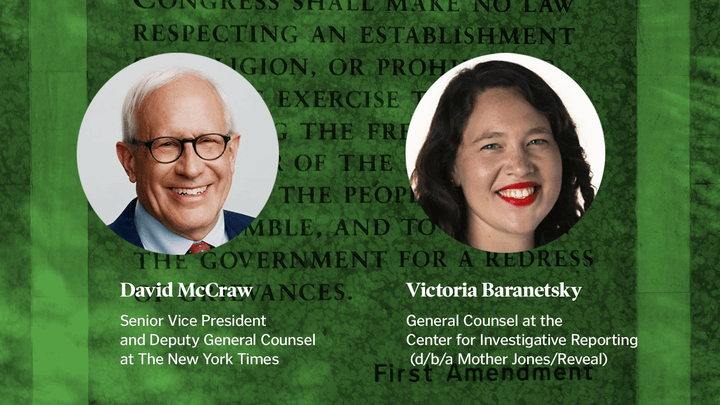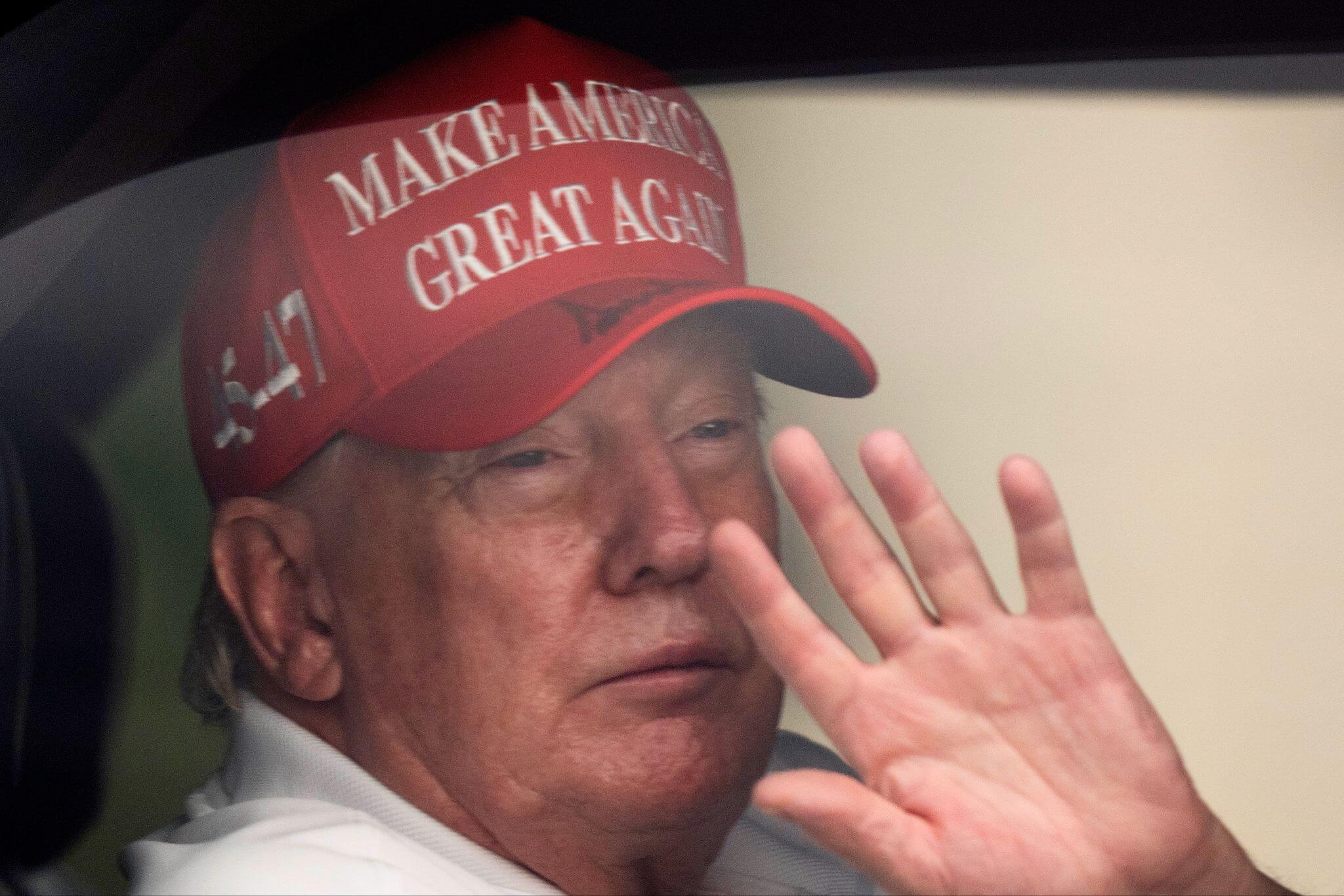On Sept. 10, during the widely anticipated presidential debate between Republican Donald Trump and Democrat Kamala Harris, something so bizarre was said that it felt like a line from an episode of “The Simpsons.”
“In Springfield, they’re eating the dogs. The people that came in. They’re eating the cats. They’re eating, they’re eating the pets of the people that live there. And this is what’s happening in our country. And it’s a shame.”
Except it wasn’t a cartoon character. It wasn’t a joke. The man saying these words before a TV audience of 67 million people was Trump. And he was dead serious. His opponent, Harris, laughed the kind of laugh one does when someone says something outlandish.
But this line didn’t come out of nowhere.
Accusing Haitian immigrants in Springfield, Ohio, of eating pets had become a Republican talking point in the GOP’s fight for immigration reform. The fact that local authorities were saying it wasn’t true didn’t stop people such as Trump and his running mate JD Vance from pushing it.
The claim gained momentum and became a common theme during the campaign. It went from a conspiracy theory to a harmful allegation with real-life consequences.
On Tuesday, Poynter’s PolitiFact named “Springfield Haitians are ‘eating pets’” the 2024 Lie of the Year. Be sure to check out the story written by PolitiFact’s Amy Sherman and Maria Ramirez Uribe.
After the announcement, I interviewed PolitiFact editor-in-chief Katie Sanders about PolitiFact’s choice, the other contenders and what she hopes audiences will take away from this year’s Lie of the Year.
Tom Jones: Hey Katie, we’ll get to this year’s Lie of the Year in a moment, but I ask you this every year because I think it’s important. Take us behind the scenes a bit and tell us the process PolitiFact uses to select a Lie of the Year.
Katie Sanders: For me, it starts with a late-fall search of our archive to find the 10 or 20 most significant statements or themes that could convincingly be elevated to “lie.” I use this list to frame conversations with the team and whittle down finalists for the Readers’ Choice ballot. Trump’s claim stood out as an obvious contender to me, our staff and the small leadership team that makes the final call on our pick. But we waited until after the election to assess which claim played the most significant role in this year’s politics.
Jones: This was an election year — with two high-profile candidates making two or three speeches a day for weeks, not to mention their running mates and various advocates appearing on cable news and Sunday morning shows. I can’t imagine a busier time for PolitiFact. With all the claims that were made, what was it about Haitian immigrants eating pets that stood out above all the other false claims out there this year?
Sanders: We went with “they’re eating the pets” for several reasons: It was ridiculous and widely debunked before Trump said it on the campaign’s biggest stage. And when Trump and Vance were challenged, they offered weak defenses about just sharing what they heard, even as GOP allies in the community begged them to stop. Trump continued sharing the story on the campaign trail as he built support for mass deportations. The city of Springfield experienced bomb threats, school closures and general harassment in the days after the debate.
Jones: If you had told me a year ago that the Lie of the Year would be about people eating pets, I would have never guessed or believed it. Can you think of a moment where this went from being just some odd rumor that could be easily dismissed to something that was actually gaining traction and making an impact?
Sanders: Our first fact check of this claim was published Sept. 9, the day before the Philadelphia presidential debate. We and other outlets covered it as an unverified internet rumor amplified by Vance, Elon Musk and other Republican accounts. As we traced the claim’s timeline for this story, from social media posts to Trump’s debate outburst, Vance’s X post felt more significant. He wrote Sept. 9: “Months ago, I raised the issue of Haitian illegal immigrants draining social services and generally causing chaos all over Springfield, Ohio. Reports now show that people have had their pets abducted and eaten by people who shouldn’t be in this country.”
The next day, hours before the debate, city officials knocked down the claim at news conferences and city commission meetings. But the Trump campaign leaned in, sharing memes of Trump with fluffy ducks and cats. That night, Trump brought up “they’re eating the pets” in response to a debate question about how he pressured Republicans to block a bipartisan border security bill.
Jones: In many of PolitiFact’s past Lies of the Year, there have been truly awful consequences. I’m thinking of lies about the coronavirus and Vladimir Putin’s claims about Ukraine and “fake news,” which has had a lasting and negative impact on our democracy. Can you quantify just how dangerous this year’s Lie of the Year was, and the negative impact that it had?
Sanders: We counted more than 30 bomb threats after the debate that forced government offices, elementary schools, Clark State College, Wittenberg University, a medical center and grocery stores to lock down, evacuate or temporarily close. Ohio Gov. Mike DeWine, the most prominent Republican official who defended the Haitians, said the bomb threats were hoaxes.
Other examples of harm are difficult to measure. Our reporters talked to a Haitian father and business owner who recalled his first-grader son asking if the family really ate cats and dogs — he was being teased at school. We heard of Haitian migrants, most here legally with temporary protected status, relocating within the U.S.
Jones: Can you share what other lies were considered for Lie of the Year, and were any of them even close to what was chosen? Were there any that had nothing to do with the various election campaigns?
Sanders: This was the clear favorite among our readers, garnering 54% of the Readers’ Choice vote. Without giving too much away about our deliberations, there was a strong case for Trump’s claim about the Biden administration stealing $1 billion in hurricane relief money from FEMA “to use it for illegal migrants,” which earned the second-highest share of the reader vote. (Talk about real-world effects.) President Joe Biden’s Full Flop on pardoning Hunter Biden came in third place. One reader told us, “I chose the pardon because all the others were secondhand information that could have easily been misconstrued. A full flop is the ultimate lie.”
Jones: Are you finding evidence that a large number of people out there, despite all the evidence to the contrary, still believe that pets were being eaten?
Sanders: In his edit of the story, Poynter Institute president Neil Brown asked whether there were any polls that showed how many people believed the pets-eating claim. I was surprised to learn that there were two polls taken after the debate, and they showed significant shares of voters believed it. A YouGov poll taken Sept. 11-12 found nearly half of Republican respondents and one-quarter of independents believed Trump’s claim was definitely or probably true. This trend held with a Washington Post poll in early October that found 42% of Republicans believed Trump.
Jones: I also ask you this every year, but I always believe it’s important to revisit. What do you hope readers take from PolitiFact’s Lie of the Year?
Sanders: “They’re eating the pets” was more than a meme, a TikTok dance or a silly line. It had consequences. Our journalists met person after person in Springfield who described the toll of the lie on their friends and family, place of worship and business. But Trump and Vance wouldn’t acknowledge the harm. On Oct. 20, Fox News’ Howard Kurtz asked Trump, “Why not say now, ‘Well, look, that turned out not to be true?’”
Trump said: “I don’t know if it’s true or not true. I read something,” and “I don’t think it’s been debunked at all.”
My thanks to Katie Sanders for taking us behind the scenes. Once again, here is the story. And now for the rest of today’s newsletter …
Hello? Anybody? Somebody?

(AP Photo/Pablo Martinez Monsivais)
Can The Washington Post find someone to run its newsroom?
Axios’ Mike Allen and Sara Fischer report that two leading candidates have withdrawn from consideration. Cliff Levy of The New York Times and Meta’s Anne Kornblut, a former Post editor, have both withdrawn, according to Axios, over the paper’s future strategy. Axios wrote the pitches to potential candidates made by Post CEO and publisher Will Lewis were “foggy and uninspiring,” according to an inside source.
Allen and Fischer added, “Axios confirmed that the search firm also reached out to Kevin Merida and Steven Ginsberg, two former Washington Post managing editors. Neither expressed interest in the role.”
Hard to imagine a day when qualified candidates were turning down a chance to become executive editor of The Washington Post.
Trump follows through
As he promised to do earlier this week, President-elect Donald Trump is suing pollster J. Ann Selzer, her polling firm, The Des Moines Register and its parent company Gannett. This is all about the poll published just days before the November election that had Kamala Harris leading Trump by three points in Iowa. Trump ended up winning the state by 13 points.
Trump is alleging those sued violated the Iowa Consumer Fraud Act. The suit claims the poll amounted to “election interference.” It alleges the paper and Selzer “hoped that the … (poll) would create a false narrative of inevitability for Harris” in the final days of the campaign.
A spokesperson for the Register said, “We have acknowledged that the Selzer/Des Moines Register pre-election poll did not reflect the ultimate margin of President Trump’s Election Day victory in Iowa by releasing the poll’s full demographics, crosstabs, weighted and unweighted data, as well as a technical explanation from pollster Ann Selzer. We stand by our reporting on the matter and believe this lawsuit is without merit.”
Most legal experts don’t think Trump’s suit has a chance. Robert Corn-Revere, chief counsel of the Foundation for Individual Rights and Expression, told CNN, “This absurd lawsuit is a direct assault on the First Amendment. Newspapers and polling firms are not engaged in ‘deceptive practices’ just because they publish stories and poll results President-elect Donald Trump doesn’t like. Getting a poll wrong is not election interference or fraud.”
But Trump seems to be determined to sue news organizations. If he can’t beat them, perhaps his goal is to create financial hardships for news organizations to defend themselves in court.
Pardon more of an interruption
News broke last month that ESPN was planning to cancel its afternoon debate show “Around the Horn” sometime next year. The show, which has been on the air since 2002, airs at 5 p.m. and leads into the gold standard of sports talk: “Pardon the Interruption” with co-hosts Tony Kornheiser and Michael Wilbon.
So what is ESPN going to do with that valuable 5 p.m. slot? Perhaps expand “Pardon the Interruption” to a full hour. The Athletic’s Andrew Marchand reports, “ESPN is still in the process of figuring out what it will do next in regards to the weekday 5 p.m. timeslot, but this is one of its top ideas.”
Another possibility is to find a full-time show for Shannon Sharpe, who joined the network earlier this year after a long stint next to Skip Bayless on Fox Sports 1. “For now, though,” Marchand wrote, “an expanded PTI is at the forefront of discussions. It would be doubling down on a successful show. Kornheiser and Wilbon would likely receive raises if they are to agree to extend their on-air time by another half hour.”
Look, no one loves “PTI” more than I do. But going from a half hour to an hour sounds like a way to turn a tight 30-minute show full of get-the-point takes into a drawn-out 60-minute that might end up meandering, particularly on days when there isn’t much sports news. “PTI” has worked as an elite half-hour show since 2001. Why mess with a good thing?
Media tidbits
- The Washington Post’s Jeremy B. Merrill, Trisha Thadani and Kevin Schaul with “See Elon Musk’s unmatched online reach.”
- Rebecca Blumenstein, president of editorial at NBC News, gave the Winter Commencement speech at her alma mater, The University of Michigan. In her speech, Blumenstein said, “I think about this often as I lead NBC News — how we can offer unbiased reporting that touches people outside their algorithm-driven echo chambers. In 1940, NBC News televised the very first newscast across the country. I think the mission articulated then — of free, trusted high-quality news — is more important than ever. I’m here to tell you that the thousands of journalists I’ve had the privilege to work with take their roles seriously. And it’s important to take what you read and consume seriously. There is a reason the First Amendment came first — it wasn’t just about protecting a free and independent press — it’s also about a free and independent population engaging with that information.” Here’s more from The University Record’s Genevieve Monsma.
- Awful Announcing’s Matt Yoder with “Sports media person of the year is Tom Brady.”
Hot type
- Variety’s Owen Gleiberman and Peter Debruge with “The Worst Movies of 2024.”
- The Atlantic’s Spencer Kornhaber with “The 10 Best Albums of 2024.”
- The New York Times’ Dave Itzkoff with “Nate Bargatze Wants Your Family to Stop Fighting for an Hour. Maybe Two.”
More resources for journalists
- Transform Local Crime Coverage in your newsroom. Application period ends Jan. 17.
- Our training for public media executives application period ends Jan. 9.
- Peak Producing: Elevate Your Newsroom, Accelerate Your Career
Have feedback or a tip? Email Poynter senior media writer Tom Jones at tjones@poynter.org.
The Poynter Report is our daily media newsletter. To have it delivered to your inbox Monday-Friday, sign up here.







